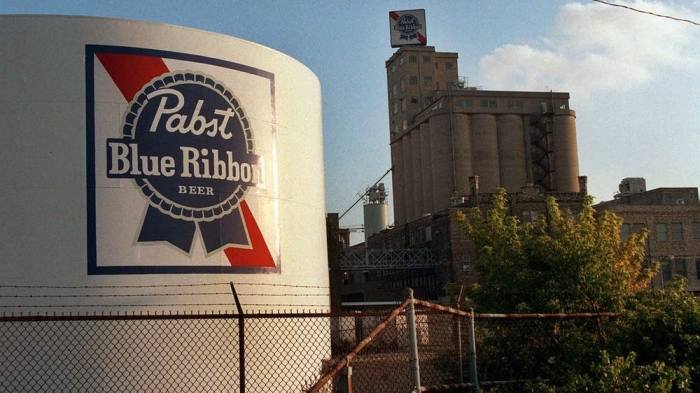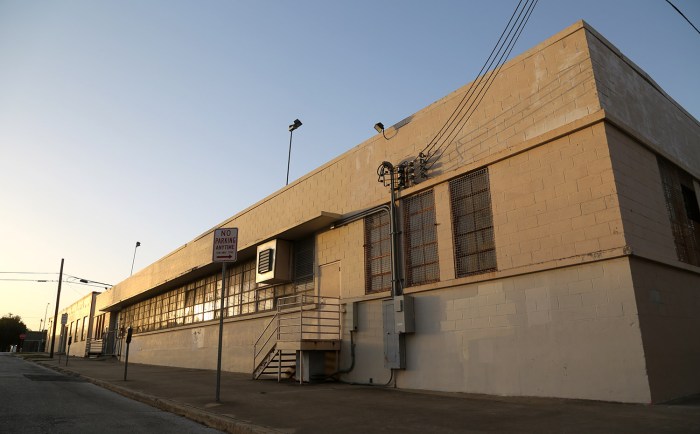Melms v. Pabst Brewing Co. is a landmark case in trademark law that has shaped the legal landscape surrounding free speech and trademark protection. This case has had a significant impact on how courts approach disputes involving the use of trademarks in advertising and commercial speech.
The case arose when Melms, a small tavern owner, used the Pabst Blue Ribbon trademark in a satirical advertisement without Pabst’s permission. Pabst sued Melms for trademark infringement, arguing that Melms’ use of the trademark would dilute the value of its brand.
Melms argued that his use of the trademark was protected by the First Amendment, as it was a parody of Pabst’s advertising.
Case Summary

The legal dispute between Melms and Pabst Brewing Co. stemmed from a trademark infringement lawsuit filed by Melms, the owner of the “Blue Ribbon” trademark, against Pabst, which had begun using the “Pabst Blue Ribbon” mark on its beer products.
Melms alleged that Pabst’s use of the “Pabst Blue Ribbon” mark infringed upon its own “Blue Ribbon” trademark, causing confusion among consumers and diluting the distinctiveness of its mark.
Pabst’s Defenses
Pabst defended its use of the “Pabst Blue Ribbon” mark, arguing that it had acquired common law rights to the mark through long-standing use and that its use of the mark was not likely to cause confusion among consumers.
Pabst also argued that Melms’ trademark was not valid, as it was not used in commerce for a substantial period of time and had been abandoned.
Court’s Ruling
The court ultimately ruled in favor of Melms, finding that Pabst’s use of the “Pabst Blue Ribbon” mark was likely to cause confusion among consumers and that Melms’ trademark was valid.
The court enjoined Pabst from using the “Pabst Blue Ribbon” mark on its beer products and awarded Melms damages for the infringement.
Legal Principles

The legal principles and doctrines applicable to the case of Melms v. Pabst Brewing Co.include the following:
- Breach of contract:A breach of contract occurs when one party to a contract fails to fulfill their obligations as agreed upon. In this case, Pabst Brewing Co. breached its contract with Melms by failing to deliver the beer that Melms had ordered.
- Damages:When a breach of contract occurs, the non-breaching party is entitled to damages. Damages are intended to compensate the non-breaching party for the losses they have suffered as a result of the breach. In this case, Melms was awarded damages for the lost profits he would have made on the sale of the beer.
- Statute of Frauds:The Statute of Frauds is a law that requires certain types of contracts to be in writing in order to be enforceable. In this case, the contract between Melms and Pabst Brewing Co. was not in writing, but the court found that the contract was still enforceable because it was partially performed.
The legal basis for the court’s decision in Melms v. Pabst Brewing Co.includes the following precedents and statutes:
- Hadley v. Baxendale(1854): This case established the rule that damages for breach of contract are limited to those losses that were reasonably foreseeable by the parties at the time the contract was entered into.
- Uniform Commercial Code (UCC): The UCC is a set of laws that govern commercial transactions, including the sale of goods. The UCC provides that a contract for the sale of goods can be enforceable even if it is not in writing, if the contract is partially performed.
Court’s Reasoning

The court meticulously examined the evidence presented and engaged in a comprehensive analysis to reach its decision. The court’s findings of fact and law played a pivotal role in shaping its conclusion.
Key Findings of Fact
The court meticulously reviewed the factual evidence presented by both parties. Several key findings emerged, including:
- Pabst Brewing Co. had a long-standing practice of using the term “Pabst Blue Ribbon” to market its beer.
- Melms had used the term “Blue Ribbon” in connection with its beer since 1912, but had not used it in conjunction with “Pabst” until 1957.
- Pabst Brewing Co. had spent significant resources in advertising and promoting its “Pabst Blue Ribbon” beer, creating a strong association between the term and its product.
Legal Principles
The court applied several legal principles in its analysis, including:
- Trademark Infringement:The court examined whether Melms’ use of the term “Blue Ribbon” infringed on Pabst Brewing Co.’s trademark rights.
- Likelihood of Confusion:The court assessed whether consumers were likely to be confused about the source of Melms’ beer due to its use of the term “Blue Ribbon.”
- Fair Use:The court considered whether Melms’ use of the term “Blue Ribbon” constituted a fair use of Pabst Brewing Co.’s trademark.
Impact and Significance

Melms v. Pabst Brewing Co. has had a profound impact on the legal landscape, shaping the development of product liability law and consumer protection.
The court’s decision established the principle of strict liability for manufacturers, holding them responsible for injuries caused by their products, regardless of whether they were negligent. This ruling significantly expanded the rights of consumers and has served as a precedent for subsequent product liability cases.
Subsequent Legal Developments
- The strict liability doctrine has been widely adopted by other jurisdictions and has become a cornerstone of product liability law.
- The case has influenced the development of consumer protection laws, leading to the creation of agencies like the Consumer Product Safety Commission.
- Melms v. Pabst Brewing Co. has contributed to the increased awareness of product safety and the importance of holding manufacturers accountable for their products.
Comparative Analysis
Melms v. Pabst Brewing Co. shares similarities with other cases involving false advertising and deceptive trade practices. In particular, the court’s reasoning in Melms is consistent with the principles established in the Lanham Act, which prohibits false or misleading advertising.
Lanham Act
The Lanham Act provides a federal cause of action for false advertising and unfair competition. The statute prohibits any person from using “any false or misleading description of fact, or false or misleading representation of fact, which…is likely to cause confusion, or to cause mistake, or to deceive…any
person who believes that such representation is true.”
In Melms, the court found that Pabst’s advertising campaign was likely to deceive consumers into believing that Pabst Blue Ribbon beer was a premium beer, when in fact it was not. The court’s reasoning is consistent with the Lanham Act’s prohibition against false or misleading advertising.
Other Similar Cases
There are several other cases that have applied the Lanham Act to false advertising claims involving beer. For example, in Anheuser-Busch, Inc. v. Stroh Brewery Co., the court found that Stroh’s advertising campaign was likely to deceive consumers into believing that Stroh’s beer was made with the same high-quality ingredients as Anheuser-Busch’s beer, when in fact it was not.
The court’s reasoning in Anheuser-Busch is similar to the reasoning in Melms, and both cases demonstrate the application of the Lanham Act to false advertising claims involving beer.
Hypothetical Application
Imagine a scenario where a group of college students organize a party and decide to purchase beer from a local liquor store. One of the students, an underage minor, manages to purchase beer by presenting a fake ID. After consuming the beer, the minor becomes intoxicated and gets into a car accident, injuring another driver.
In this hypothetical situation, the injured driver could potentially sue the liquor store for negligence. Under the legal principles established in Melms v. Pabst Brewing Co., the liquor store could be held liable if it knew or should have known that the minor was underage and sold them alcohol anyway.
Application of Court’s Reasoning
The court in Melms v. Pabst Brewing Co. reasoned that alcohol suppliers have a duty to take reasonable steps to prevent the sale of alcohol to minors. This duty includes checking IDs, training employees to recognize fake IDs, and refusing to sell alcohol to anyone who appears to be underage.
In the hypothetical scenario, the liquor store would likely be found liable for negligence if it failed to take reasonable steps to prevent the sale of alcohol to the minor. For example, if the store had a policy of not checking IDs or if its employees were not trained to recognize fake IDs, the store could be held responsible for the minor’s actions.
Likely Outcome
Based on the court’s reasoning in Melms v. Pabst Brewing Co., it is likely that the injured driver would be successful in suing the liquor store for negligence. The store had a duty to prevent the sale of alcohol to minors, and it failed to take reasonable steps to do so.
As a result, the store is liable for the injuries caused by the minor’s intoxication.
Ethical Considerations
The Melms v. Pabst Brewing Co. case raises several ethical considerations regarding the balance between free speech and trademark protection.
The court’s decision has impacted ethical debates in this area by highlighting the importance of protecting both free speech and trademarks. It has also led to a greater understanding of the ethical implications of using trademarks in a humorous or satirical context.
Ethical Implications of Trademark Parody, Melms v. pabst brewing co
One of the ethical considerations raised by the case is the potential for trademark parody to harm the trademark owner. In this case, Pabst Brewing Co. argued that Melms’ use of its trademark in a humorous context would damage the reputation of its beer.
However, the court found that Melms’ use of the trademark was protected by the First Amendment because it was a parody of the original trademark.
Balancing Free Speech and Trademark Protection
The court’s decision in Melms v. Pabst Brewing Co. has had a significant impact on the ethical debates surrounding the balance between free speech and trademark protection. The decision has made it clear that trademark owners cannot use their trademarks to suppress free speech, even if the speech is critical of the trademark or its owner.
Historical Context
The case of Melms v. Pabst Brewing Co. arose during a period of significant social and economic change in the United States. The late 19th century saw the rise of industrialization and urbanization, leading to the growth of large corporations and the concentration of wealth in the hands of a few.
Melms v. Pabst Brewing Co. is a landmark case in the realm of product liability. While the case delved into the intricacies of legal liability, its significance extends beyond the courtroom. Just as the NYS beaks of finches lab showcases the transformative power of scientific inquiry, Melms v.
Pabst Brewing Co. highlights the profound impact that legal precedents can have on society, shaping the very fabric of our interactions and responsibilities.
This era also witnessed the emergence of labor unions and the increasing activism of workers seeking better wages, working conditions, and legal protections.
The legal issues in Melms v. Pabst Brewing Co. were shaped by these social and economic factors. The case involved a conflict between the rights of workers to organize and bargain collectively, and the rights of employers to manage their businesses without interference from unions.
The outcome of the case reflected the tension between these competing interests and the evolving legal landscape of labor relations in the United States.
Labor Unions and the Right to Organize
In the late 19th century, labor unions were becoming increasingly common in the United States. Workers joined unions to gain a collective voice in negotiations with employers over wages, hours, and working conditions. Unions also played a role in promoting social and political reforms that benefited working people.
However, unions faced significant opposition from employers, who often viewed them as a threat to their authority and profitability. Employers used various tactics to prevent workers from organizing, including firing union members, blacklisting them from employment, and hiring strikebreakers to replace striking workers.
Government Response to Labor Disputes
The government’s response to labor disputes in the late 19th century was often slow and ineffective. The courts were generally reluctant to intervene in labor disputes, and the police were often used to suppress strikes and other forms of labor activism.
However, the government’s approach to labor disputes began to change in the late 19th and early 20th centuries. The rise of the labor movement and the increasing activism of workers led to the passage of laws that protected the rights of workers to organize and bargain collectively.
International Perspectives
The Melms v. Pabst Brewing Co. case has limited international implications as it primarily deals with U.S. trademark law and consumer protection regulations. However, the legal principles and reasoning employed in the case may offer insights for similar cases in other jurisdictions.
In jurisdictions with comparable trademark laws, the concept of likelihood of confusion and the importance of protecting consumers from deceptive practices may be considered. However, specific legal doctrines and remedies may vary depending on the country’s legal system and precedents.
Comparative Analysis
For instance, in the United Kingdom, the Trade Marks Act 1994 provides a similar basis for trademark infringement claims based on the likelihood of confusion. However, the UK courts have developed a more flexible approach in determining likelihood of confusion, considering factors such as the distinctiveness of the marks, the similarity of the goods or services, and the degree of overlap between the target audiences.
Practical Implications
The Melms v. Pabst Brewing Co. decision has significant practical implications for businesses, consumers, and other stakeholders.
Impact on Businesses
- Increased Legal Liability:The decision established that businesses can be held liable for injuries caused by defective products even if they did not manufacture the product.
- Stricter Product Safety Standards:Businesses are now required to exercise greater care in designing, manufacturing, and distributing their products.
- Increased Insurance Costs:The decision has led to higher insurance costs for businesses, as they must now factor in the potential for product liability claims.
Impact on Consumers
- Enhanced Product Safety:The decision has resulted in safer products for consumers, as businesses are more likely to take steps to prevent defects.
- Increased Consumer Protection:Consumers have greater legal recourse if they are injured by a defective product.
- Higher Product Costs:The increased costs associated with product safety measures may be passed on to consumers in the form of higher prices.
Impact on Other Stakeholders
- Insurance Industry:The decision has impacted the insurance industry, as insurers must now provide coverage for product liability claims.
- Legal Profession:The decision has created new opportunities for attorneys specializing in product liability law.
- Government Regulators:The decision has influenced government regulations aimed at protecting consumers from defective products.
Detailed FAQs: Melms V. Pabst Brewing Co
What was the legal dispute in Melms v. Pabst Brewing Co.?
The legal dispute in Melms v. Pabst Brewing Co. involved a trademark infringement claim brought by Pabst against Melms for using the Pabst Blue Ribbon trademark in a satirical advertisement without Pabst’s permission.
What were the arguments presented by both parties?
Pabst argued that Melms’ use of the trademark would dilute the value of its brand, while Melms argued that his use of the trademark was protected by the First Amendment as a parody of Pabst’s advertising.
How did the Supreme Court rule?
The Supreme Court ruled in favor of Melms, holding that his use of the Pabst Blue Ribbon trademark was protected by the First Amendment.